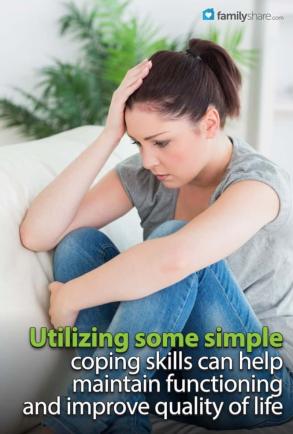
Living with Obsessive Compulsive Disorder can be a challenge. Without a cure, daily living focuses on a variety of skills that manage symptoms and improve functioning. Sometimes medication and therapy can help, but here are some everyday tips:
1. Be your own expert
Understanding anxiety and its role in OCD, as well as the different kinds of OCD, is important. Focus only on the symptoms you have, and identify what triggers those. Find coping skills to resolve them. Being creative as a way around symptoms will help break old habits, too.
2. Relax
. Stress is a big trigger for any kind of anxiety disorder, including those related to obsessions and compulsions. Getting enough sleep, eating nutrient dense food, and breaking problems down into simple parts will help reduce stress.
3. Breathe
When we feel anxious, sometimes it is hard to breathe, or we breathe too fast. Concentrating on deep, slow breaths will help your body calm down. Some find it helpful to breathe in for a count of four, hold it for a count of four, and breathe out for a count of four. There are also breathing exercises that help with muscle relaxation. It's important to practice these when you are calm so that you are prepared to utilize them when anxious.
4. Go to the source
If it is a problem triggering OCD symptoms, deal with the problem directly. Examples might be seeing a doctor about a pain you have, or resolving a disagreement with your spouse, or finishing that assignment that's been hanging over your head. When the problem is resolved, the stressor is removed.
5. Identify emotions
Sometimes the trigger is emotional, and expressing it directly will help the OCD symptoms settle down. If you are afraid about an upcoming meeting, reminding yourself that you are prepared, and your notes are ready to go may help calm you down. If you are upset about a mistake, make a list of all the positive things you learned from the experience. If you are sad, tell a friend and do an activity to cheer yourself up.
People with OCD can live normal, healthy lives. Utilizing some simple coping skills can help them maintain functioning and improve the quality of life.

